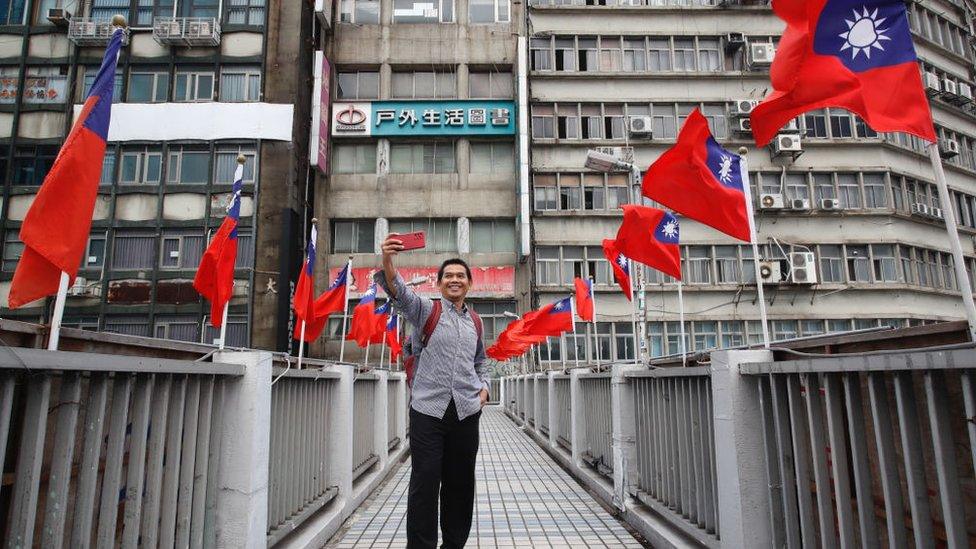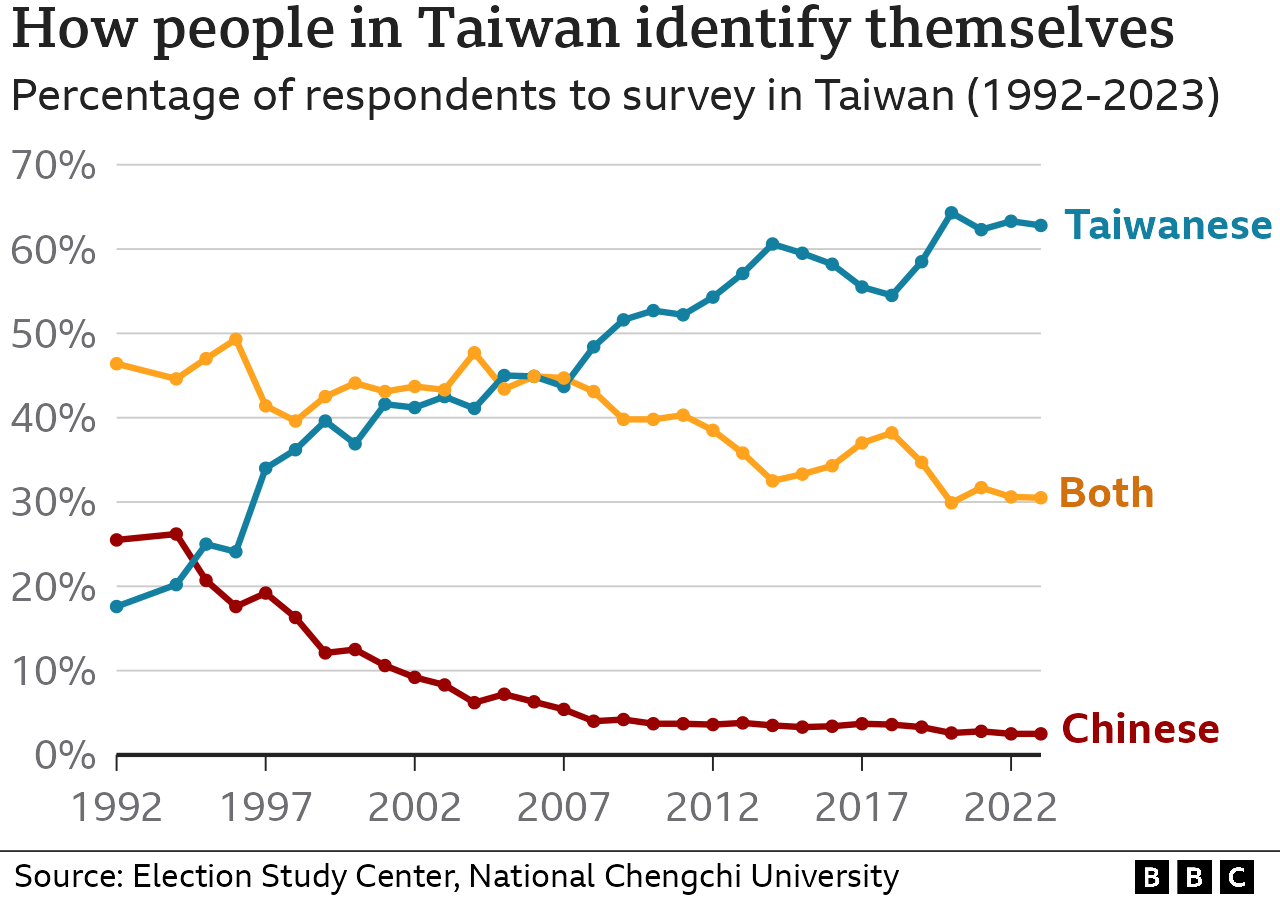China and Taiwan: A really simple guide
- Published

China sees self-ruled Taiwan as a breakaway province that will eventually be under Beijing's control - and has not ruled out the use of force to take the island.
But Taiwan sees itself as distinct from the Chinese mainland, with its own constitution and democratically-elected leaders.
Taiwan has strong links to China, its biggest trading partner. And many Taiwanese have business and family connections across the strait. But over time, polls show that the number of people who identify as Taiwanese, as opposed to Chinese, has gone up.
Has Taiwan always been separate from China?
The island, which is roughly 100 miles from the coast of south-east China, has been home to various indigenous tribes for centuries.
Historical sources suggest it first came under the full control of a Chinese empire in the 17th Century. It became a Japanese colony in 1895, after the Qing empire lost the first Sino-Japanese war. Then in 1945, after Japan lost World War Two, China took the island but now a nationalist government, led by General Chiang Kai-shek, was in power.
This was at the height of a decades-long conflict between Chiang's forces and Mao Zedong's Communist Party. When the communists won in 1949, Chiang and what was left of the nationalist party, known as the Kuomintang or KMT, fled to Taiwan, where they ruled for several decades. They called this the Republic of China, a name Taiwan has retained.

The Chinese Communist Party points to this history to claim Taiwan. But the Taiwanese point to the same history to argue that they were not part of the modern Chinese state that was first formed after the revolution in 1911 - or the People's Republic of China that was established under Mao in 1949.
Today, only 12 countries (plus the Vatican) officially recognise Taiwan. The US decision to switch diplomatic recognition from Taipei to Beijing in 1979 was the turning point. And a richer, more powerful China exerts pressure so more countries do not recognise Taiwan or lend it support.
But America remains the island's strongest ally, sells arms to it and has vowed to help in case of a Chinese attack.
Can Taiwan defend itself?
China has spoken of "peaceful reunification" - a long-term goal to win over the island's population through soft power and CCP-sponsored messaging that shows unification in a positive light.
But Beijing has also used threats. President Xi Jinping has said "reunification" with the island must be fulfilled and is believed to have a deadline.
In a military confrontation, China's armed forces would dwarf those of Taiwan.

China is the second-biggest spender on defence after the US and could draw on a huge range of capabilities, from naval power to missile technology, aircraft and cyber attacks.
Some Western experts predict that Taiwan could at best aim to slow a Chinese attack, try to prevent a shore landing by amphibious forces, and mount guerrilla strikes while waiting for outside help.
And that help could come from the US.
But for decades Washington has walked a diplomatic tightrope between Beijing and Taipei - and has been deliberately unclear about whether or how it would defend Taiwan in the event of an attack.
US-China ties have, however, soured in recent years. And Beijing often accuses the US of reneging on its "One-China" policy, which recognises only one Chinese government, in Beijing. But Washington denies this, saying the status quo has not changed.
What is the strategic importance of Taiwan?
Taiwan sits in the so-called "first island chain", which includes a list of US-friendly territories that are crucial to Washington's foreign policy in the region.
China's increasingly aggressive behaviour in the South China Sea has also made Taiwan more significant to US calculations.

Taiwan's economy is another factor. Much of the world's electronics - from phones to electric cars - are powered by computer chips made in Taiwan. By one measure, a single Taiwanese company - the Taiwan Semiconductor Manufacturing Company or TSMC - has over half of the world's market.
So if China takes the island, it could be freer to project power in the western Pacific and rival the US. Beijing would also have control over an industry that drive the global economy.
But China insists that its intentions are peaceful - and accuses the US of encircling it with military bases that stretch from Australia in the south to Japan in the north.
This article was amended in July 2022 to provide more historical background about Taiwan's status.